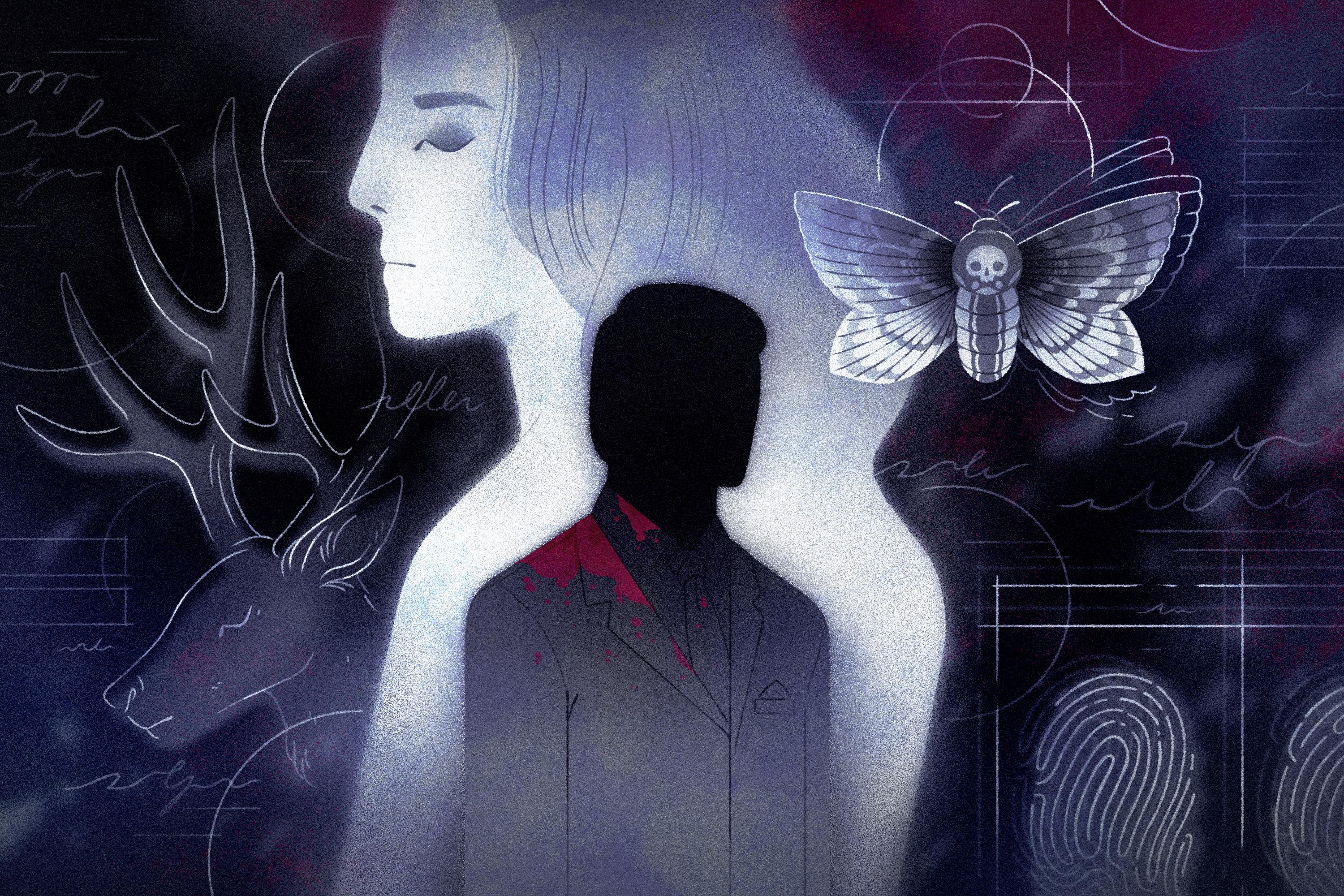CBS’s ‘Clarice’ Can’t Reference Hannibal Lecter—but Maybe That’s for the Best
The ‘Silence of the Lambs’ follow-up, which centers on Clarice Starling’s adventures post–Buffalo Bill, isn’t legally allowed to use the good doctor’s name. But considering the blandness of the series’ first few episodes, it shouldn’t be allowed to anyway.

With CBS debuting Clarice on Thursday night—and the 30th anniversary of The Silence of the Lambs arriving just three days later—The Ringer is spending a day celebrating Hannibal Lecter and his strangely intoxicating universe.
Clarice doesn’t waste any time addressing the elephant in the room. The new CBS series, a follow-up to Thomas Harris’s The Silence of the Lambs, opens with FBI agent Clarice Starling (played by Rebecca Breeds) in a therapy session a year after she stopped the serial killer Buffalo Bill. The back-and-forth sequence of close-up shots of Clarice and the therapist would’ve inevitably drawn comparisons to Jonathan Demme’s Oscar-winning film adaptation, even if the show didn’t also employ quick-cut flashbacks of Clarice and Bill and poorly rendered CGI moths. But while Clarice brazenly cosplays an all-time great horror movie, it can’t even name-drop Silence’s most enduring figure. The infamous Hannibal Lecter is relegated to a throwaway line about how Clarice’s previous therapist “ate his patients,” before she clarifies that their relationship was a “quid pro quo.” That’s it. Maybe the lambs have finally stopped screaming, but I’m about to.
The in-universe premise of Clarice is that the rookie agent earned instant fame through the Buffalo Bill case, and that the FBI is more focused on her rise than finding the cannibalistic serial killer who’s canonically still on the loose. (Lecter not being behind bars seems like it should be an urgent matter for those at the bureau, just my take!) Clarice’s decision to omit all explicit mentions of Lecter isn’t a stylistic choice, though, but rather due to a bizarre and convoluted legal matter: the rights to the characters of Harris’s books are divided between MGM and the Dino De Laurentiis Company. The easiest way to understand the split is that any character that didn’t appear in NBC’s Hannibal (i.e., Clarice, Buffalo Bill, Ardelia Mapp, Paul Krendler) is fair game for the CBS show, while the rest are off limits.
It’s an awkward space for Clarice to navigate—the absence of Lecter’s name ends up bringing more attention to how weird the situation is. But there’s a world in which the void left by Lecter could have been for the best: the serial killer already has been memorably portrayed in film and television by Anthony Hopkins and Mads Mikkelsen, respectively, and whenever such an indelible character takes center stage, he tends to devour everything around him. (Oftentimes, uh, literally.) Clarice Starling, meanwhile, hasn’t had a fair shake since Jodie Foster’s exemplary take on the character in Demme’s adaptation in 1991. (The less said about Julianne Moore’s portrayal in Ridley Scott’s Hannibal, the better.) With the CBS series set in 1993, Clarice is still navigating leering, male-dominated workplaces—plus, she doesn’t have access to a cellphone, which has become a serial killer-tracking cheat code. There could have been worthwhile material to explore, in spite of this silly legal minefield over a name.
But the most egregious aspect of Clarice isn’t that it’s a Lecterverse show without its most iconic killer. It’s that it doesn’t want to focus on hunting down serial killers to begin with. The first three episodes of the series set up a serialized mystery arc—along with a second-episode detour to a Waco-esque standoff in Appalachia—which initially appears to confirm that there’s a new serial killer mutilating women around the Beltway. But soon Clarice deduces that the killings are meant as a cover-up for (minor spoiler alert) an old pharmaceutical trial gone wrong, and she’s left to focus on cracking some kind of nebulous, far-reaching conspiracy that has nothing to do with a rogue psychopathic mind. The early impressions are that the Clarice brain trust was inspired more by the corporate malfeasance of, say, Amazon’s Homecoming than by the themes and execution that made Silence such a cultural phenomenon.
“We’re looking not to repeat what Demme did, because I think the biggest mistake that we could make would be to mirror the style of that,” cocreator Alex Kurtzman told Entertainment Weekly in December, explaining why Clarice’s first season won’t have a “traditional” killer. Disregarding the fact that Clarice recreates the imagery and scenes from Demme’s adaptation in recurring flashbacks, which undercuts Kurtzman’s own flawed logic, that mindset turns the show into the kind of generic crime procedural that broadcast television is known for. Instead of aiming for the baroque surrealism of NBC’s Hannibal or the brooding charm of Mindhunter, Clarice tepidly aspires to be the next Criminal Minds.
Now, there’s nothing wrong with Criminal Minds—it lasted 15 seasons on CBS for a reason—but such a staid framework is antithetical to what’s made the Lecterverse so appealing. (Also, even Criminal Minds featured more than its fair share of serial killers!) If the Clarice brain trust can’t legally mention Hannibal Lecter by name and doesn’t want its title character tracking down serial killers, why not just … make a standard crime procedural without such outsized expectations? The answer is, of course, that such a familiar setup being attached to flashy IP will probably reel in more viewers. But for anyone who loved Demme’s film and Bryan Fuller’s NBC series, the novelty of an actress mimicking Jodie Foster’s West Virginia accent wears thin after a few minutes. All that’s left is something that even the worst entries of the Lecterverse avoided becoming: a project that is horrendously dull.
What’s more, Clarice can’t even reach the low bar of accurately depicting Harris’s characters. Clarice’s boss in the FBI’s Violent Criminal Apprehension Program, Paul Krendler (Michael Cudlitz), is initially presented as a foil: an authority figure undermining and dismissing his subordinate at every turn. Three episodes in, though, it becomes obvious that Krendler is softening his stance on Clarice, as the two build toward a mutual understanding and respect. That’s all well and good, but that was never Harris’s intent. For a more faithful interpretation of Krendler, consider Ray Liotta’s portrayal in the Hannibal film adaptation—someone so repugnant he can’t help but make snide remarks about Clarice being white trash, even while Lecter is feeding the dude his own brain.
Broadcast television was always going to be an awkward fit for a faithful reimagining of Harris’s work—the macabre beauty and sheer WTF-ery of Fuller’s Hannibal actually airing for three seasons on NBC feels like more of a miracle every year. But faithfulness, it seems, isn’t Clarice’s modus operandi. Instead, the show wants to Trojan horse viewers who are expecting another thrilling extension of a wonderfully gruesome series of books into watching a bland CBS procedural. In retrospect, it’s a relief that Clarice wasn’t allowed to get its hands on Hannibal Lecter and sully the good doctor’s name.

